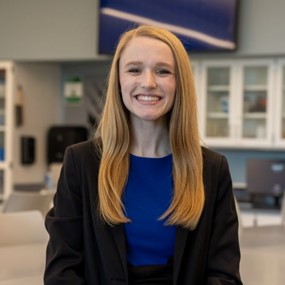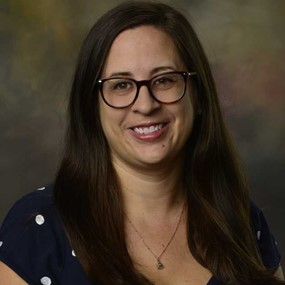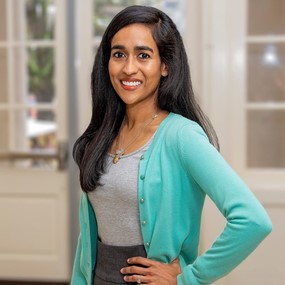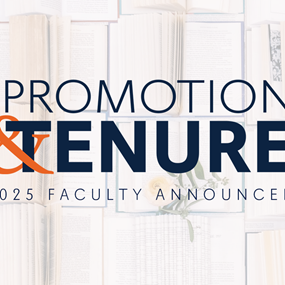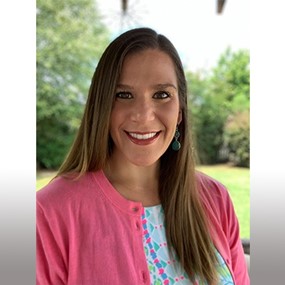Head of the class: Auburn Brain Camp provides practical experience, invaluable guidance for promising high school students
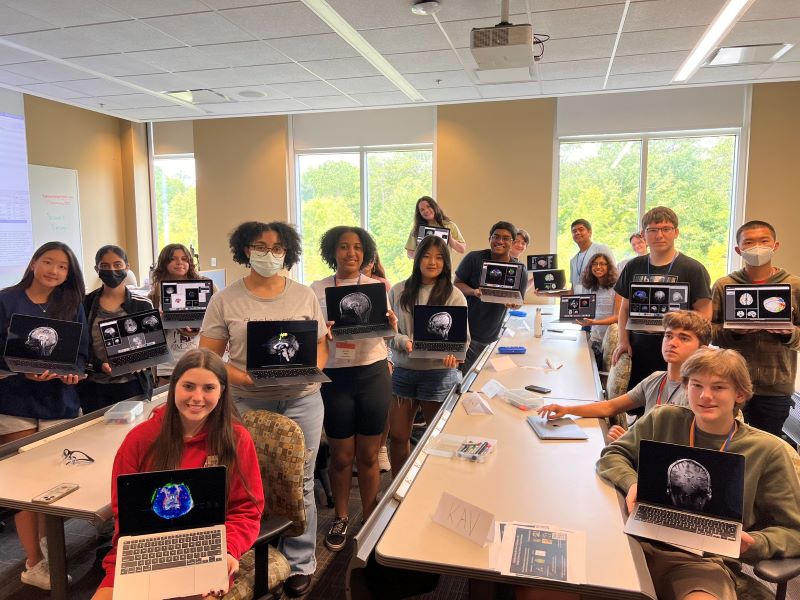
For a group of nearly 20 promising high school students interested in pursuing futures in neuroscience and medical fields, the Auburn University Brain Camp, or AUBC, was an experience they won’t soon forget.
Nineteen accomplished high school students from throughout Alabama and across the nation gathered at Auburn University July 17-22 for a one-of-a-kind immersive experience that left a lasting impression. Whether it was scanning their own brains, performing laboratory dissections, visiting Canine Performance Sciences in the College of Veterinary Medicine or experiencing a visit from the Southeastern Raptor Center, AUBC students were treated to a variety of experiences, activities and informative sessions that gave them a glimpse of what their futures may look like as college students and working professionals.
Led by Department of Psychological Sciences Professors Jennifer Robinson and Jeff Katz, AUBC provided opportunities for students to perform and analyze MRI scans of their brains, perform dissections in a university biology lab, learn about cutting-edge research with investigators from Canine Performance Sciences and experience neuroscience research methods such as electroencephalography, or EEG, in Matt Miller’s lab in the School of Kinesiology. In addition, students attended presentations by second-year medical students at the Edward Via College of Osteopathic Medicine, or VCOM, involving cadavers and learned about raptors’ brain functions during a special visit by a representative from the raptor center.
The variety of applications and illustrations of neuroscience’s reach was paramount, and students benefited from the hands-on and immersive camp.
“I love being a part of it, and every year, I learn something different,” said Robinson, who joined Auburn’s Department of Psychological Sciences in 2012. “One of the more fun parts of it is just watching it through their eyes. There are a lot of really, really cool things we try to show the students from different perspectives and angles, hoping they will understand the gravity of how magnificent our brains are, how adaptive of an organ it is and that, while it may look similar across species, it operates very differently and is specifically tailored to each animal. To me, that is remarkable.”
This summer’s camp flourished thanks to partnerships with several groups, departments and colleges, including Auburn Summer Youth Programs, the Auburn University MRI Research Center in the Samuel Ginn College of Engineering, Department of Biological Sciences in the College of Sciences and Mathematics, the School of Kinesiology in the College of Education and the College of Veterinary Medicine, home to both the Southeastern Raptor Center and the Canine Performance Sciences group.
Now in its eighth year, the camp has become a university-wide endeavor offering a wide array of experiences for students.
“They’ve all been wonderful partners, and we try to involve everybody who wants to be involved,” Robinson said. “Having collaborators across campus with different lenses makes science better. VCOM has been wonderful, and the biology lab has been phenomenal, in terms of providing supplies for the dissections and giving us the space and means to do that. At the Canine Performance Sciences center, the students learned about how a dog’s brain works, how they process odors and how that might correlate with and deviate from human olfaction.
AUBC is thriving in part thanks to collaborative efforts and generous support from the campus and Auburn community.
“Something I think is pretty remarkable about our camp is that we have folks who volunteer their time, their resources, their lab space and their materials, and that is very humbling that they’re willing to do that for our camp,” Robinson said. “We couldn’t do it without them, so we’re extraordinarily lucky to have such strong support from faculty, departments and colleges across campus. I think it really goes to show just how interdisciplinary neuroscience is, and we hope that is one of the takeaways from our camp. It certainly takes a village to decipher the brain, and the more lenses and approaches we take, the closer we’ll get.”
Creating ‘Aha’ moments
Providing a welcoming environment at the camp often leads to students making major revelations about what they want to pursue in college and beyond.
“A lot of them do have those light bulb moments when they’ll say, ‘I never realized that’ and ‘That’s crazy,’” Robinson said. “Every day, there’s at least one student who has that moment, and you can just hear the excitement in their voice and how transformative that little piece of information is. To me, that’s probably one of the most rewarding aspects of teaching in general, and the fact that we experience it almost daily at camp is extremely fulfilling.”
It is important, Robinson said, to provide an array of interactive elements to accompany in-class lectures to give students the most well-rounded and enjoyable experience possible.
“One thing we learned very early on is that the kids don’t want to sit and just listen to lectures, they want to see and do the hands-on stuff and be a part of it all,” Robinson said. “So, we’ve really shied away from too much lecturing and have been more about integrating it with a presentation of, ‘Here’s what we’re doing, and here’s why we’re doing it’ and filter in the information as we go along.”
The successful camp was an experience that students—who go through a selection process before being chosen to participate—will remember for quite some time.
“It was amazing learning about the different branches and topics dealing with neuroscience,” said camper Grace Jones, a senior at the Alabama School of Mathematics and Science in Mobile. “Going into the camp, I was aware that I wanted to get into neuroscience research, but I was not sure what I wanted to focus on research-wise. Listening to the diverse types of lectures made me just want to study everything, ranging from the region in the brain that oversees addictions to things like neuroethics.”
Jenna Robertson, a 2017 Auburn Brain Camp attendee who is currently conducting research with Robinson, helped her mentor conduct the camp this year. Attending the camp five years ago helped Robertson choose to attend Auburn, and she has been excited to see it be just as beneficial to current high schoolers.
“It’s an awesome camp, and they get to do a lot,” said Robertson, a North Carolina native who is working toward a degree in computer science, with a minor in psychology. “When I was a camper, I just really valued what the brain camp was able to provide me. I was from out of state, and neither of my parents went to Auburn, so I didn’t want to come to Auburn on a whim. Not really having any idea what college was going to be like, I found the brain camp and it honestly is what solidified that I wanted to go to Auburn.
“I felt like the brain camp was so hands-on, and that really made me feel like I was an Auburn student and realize how much I enjoyed it. I feel like being able to experience that in high school is so unique, and that’s what makes me love the brain camp and want to keep it going because it was just phenomenal.”
Not only were students able to experience a wide array of experiments and exercises, but they were immersed in college life. Auburn Summer Youth Programs staff and counselors planned daily activities for the students after the camp concluded each day that included everything from a movie night and visit to the James E. Martin Aquatics Center to a stop at Toomer’s Corner and tour of downtown Auburn.
Most of the campers stayed overnight in Auburn’s dormitories, and their meals also were included as part of the experience.
“I go to a boarding school, so I already know what living on campus is like but living on a college campus is so much better than living on a high school campus,” said Jones, who plans to pursue a neuroscience degree when she begins college next fall. “I liked how nice the facilities were and how there were so many things to do on campus. I liked exploring the campus and seeing how college students lived and how college professors functioned.
“It made me more excited to go to college.”
Jones said one lecture in particular, by Kinesiology Assistant Professor Kristina Neely, stood out to her most.
“She talked about her research on the basal ganglia and how it affected movement disorders,” Jones said. “The subject matter just fascinated me, and hopefully, in time, I also will be able to do research on the basal ganglia and movement disorders. It made me want to pursue neuroscience further, and I intend to study it in college.”
Auburn Family support providing opportunities
The camp was buoyed by nearly $28,000 in donations from the 2022 Tiger Giving Day in February, which allowed Robinson to purchase new laptop computers for the students to utilize during their weeklong visit to the Plains. The Birmingham-based Medical Properties Trust—which has supported the camp for several years by providing financial support for the campers’ brain scans—matched donations to help push the fundraising effort, and the generosity of the Auburn Family gave Auburn Brain Camp a big boost that allowed organizers to minimize costs for attendees.
“It really expanded what we could show them and what they could engage with,” Robinson said. “We had such a successful Tiger Giving Day, and that allowed us to provide scholarships and purchase new computers for our campers to use. From a technology standpoint, that put us on different footing and elevated the experience for our campers because we could walk them through how to analyze their own brain data.”
Often times, the camp has become a springboard for participants to go on to enriched college experiences at Auburn and other universities before progressing to fulfilling careers in the neurosciences or related fields.
“We’ve seen some campers graduate and go off to do awesome things, which is so incredibly special,” Robinson said. “It’s really humbling when you get emails back, and they say things like, ‘I got into this college,’ ‘I’m going to be doing neuroscience,’ ‘I’m going to med school,’ or ‘I really got interested in engineering after seeing how engineering is applied to the brain.’ The push into STEM happens naturally through that, and I think that’s where the magic happens, that intersection between the social sciences and STEM fields.”
Seeing students take advantage of the opportunities and use them to propel their lives and careers is a particularly rewarding aspect of the camp for Robinson.
“These kids are so brilliant, and that in and of itself is really a wonderful experience, to just hear the thoughts in their minds,” Robinson said. “It just makes my heart swell that they’re already thinking about so many high-level issues and they’re motivated and passionate about making a difference and using this knowledge to advance our health and our wellness.
“The future is in good hands.”
Tags: Psychological Sciences

